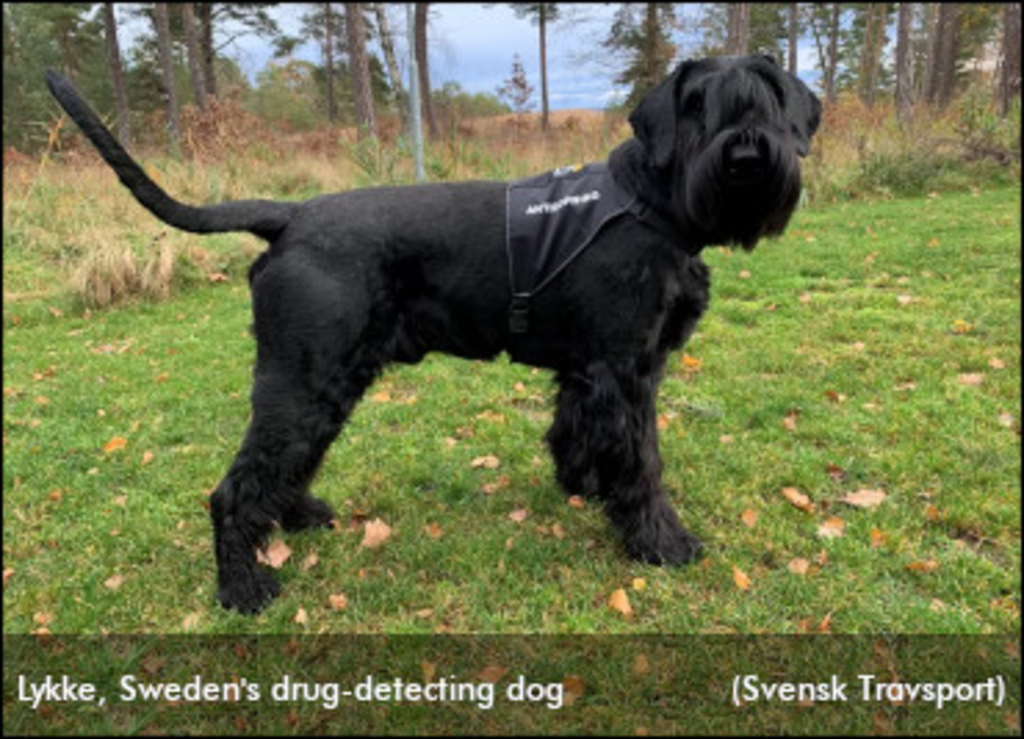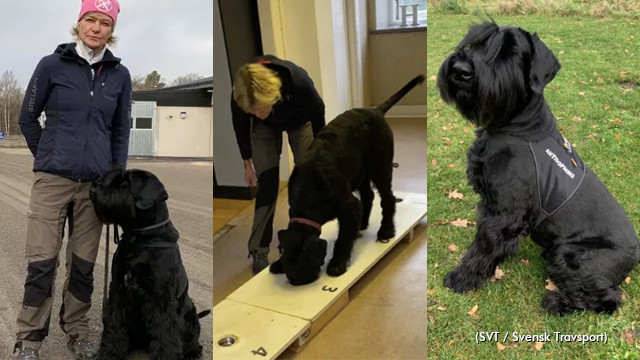
Two years after the New Jersey Racing Commission introduced a drug-detecting dog, the governing body for harness racing in Sweden has unveiled a similar initiative with a canine sleuth of its own.
Lykke (Swedish for happiness) is a 2-1/2-year-old giant schnauzer who has now officially taken the step as a tool in the anti-doping work within Swedish Trotting together with his driver Fia Mårdfelt. Together, they have attended a special search training at Hundcampus and during the training, Fia felt that this would be interesting to test on horses and anti-doping. She therefore contacted Swedish Trotting and a pilot project was launched in the spring of 2021.
He is not just looking for syringes, cans or the like that may contain preparations that "ordinary" search dogs make. He is also looking for traces of preparations that come from a horse and thus have already passed through the body. Among other things, he will search for boxes and urine stains both at competition venues and during checks in training to point out horses that can be treated and thus should be tested.
"Since the spring Lykke has been trained in several preparations and we will train more and more as time goes on. Lykke's capacity is large and there are almost no restrictions for his sensitive nose," says Agneta Sandberg, animal welfare specialist at Svensk Travsport.

"Lykke has proven to have all the qualities needed for a dog that will work with search assignments at this level. His personal qualities combined with an enormous analytical ability make him a fantastic tool. We are now ready to support Swedish Trotting in their anti-doping work and with Lykke we can develop the work to new levels," concludes driver Fia Mårdfelt.
Mattias Falkbåge, head of investigation at Svensk Travsport, summarizes the current situation in the anti-doping work as follows:
"We have a good foundation to stand on in our anti-doping work with, for example, the 4,000 samples taken annually in both competition and training, recording previously frozen samples for control with improved analysis methods, use of international labs for analyzes and the targeted checks that are made from our side for tips. The whistleblower system that we released this summer means that we receive more tips and information than before, which is a crucial factor in timing operational efforts such as reconnaissance in time and place."
In addition to the new anti-doping dog, the department's resources and skills will also be strengthened. A decision has recently been made that a person with special competence in reconnaissance and operational work should be recruited.
"When we have our new resource in place, together with the anti-doping dog, they can lift our operational work to new levels. Levels we must reach to make the fight against those who harm our trotting sport through doping more efficient. It is not least a horse welfare issue. It should be taboo and shameful to try to give oneself benefits by cheating through doping. Those who try to dope, they should know that we are working against them and we will never stop working against them. They should feel that we are there, they should feel our presence," concluded Falkbåge.
(with files from Svensk Travsport)

